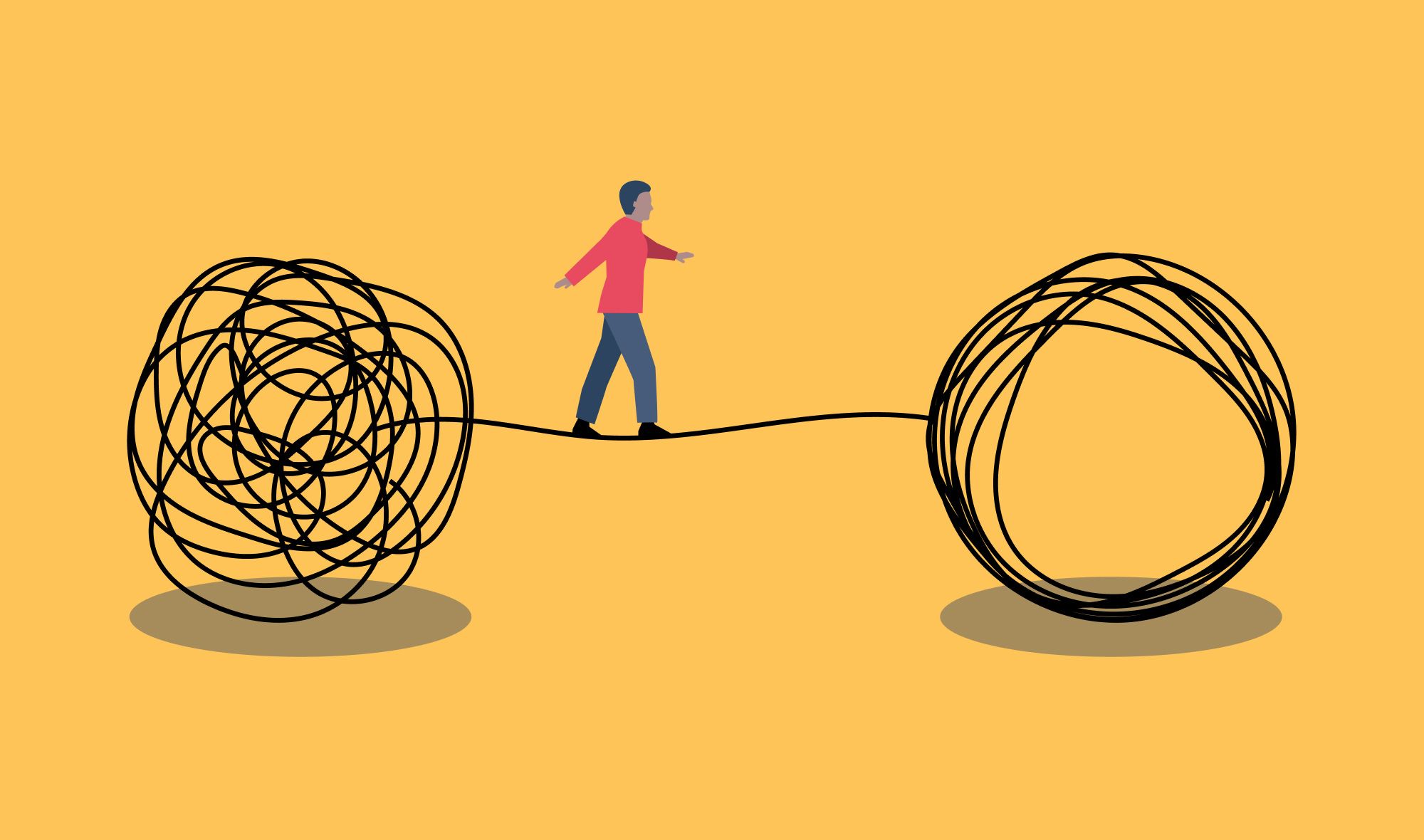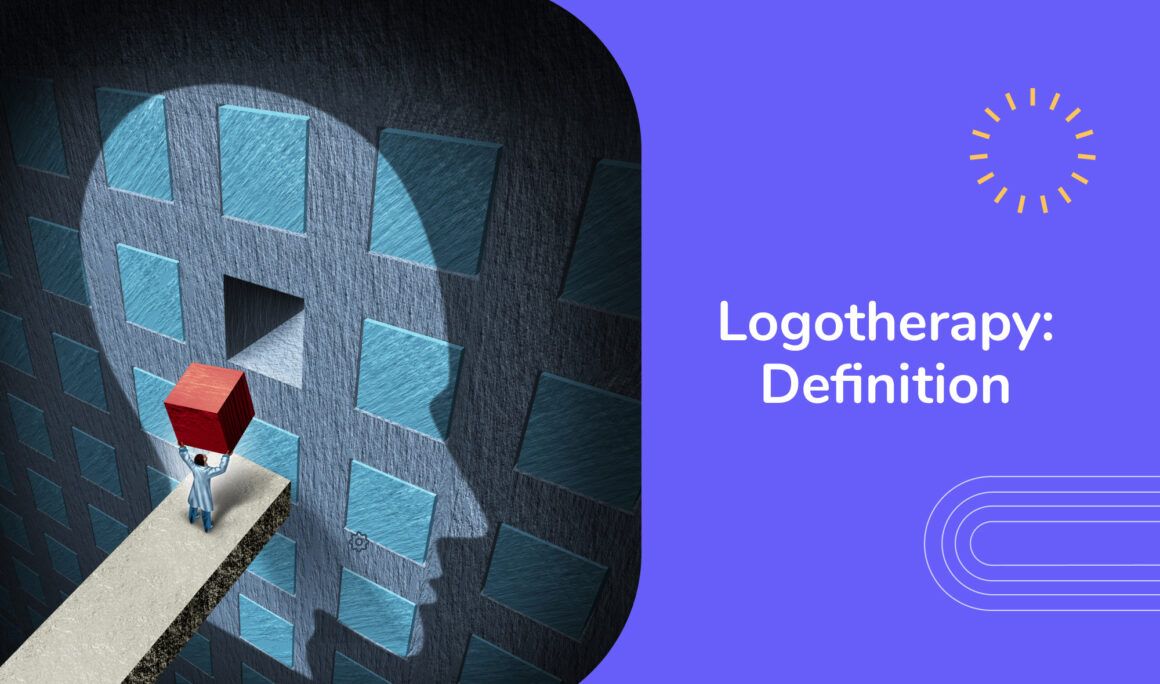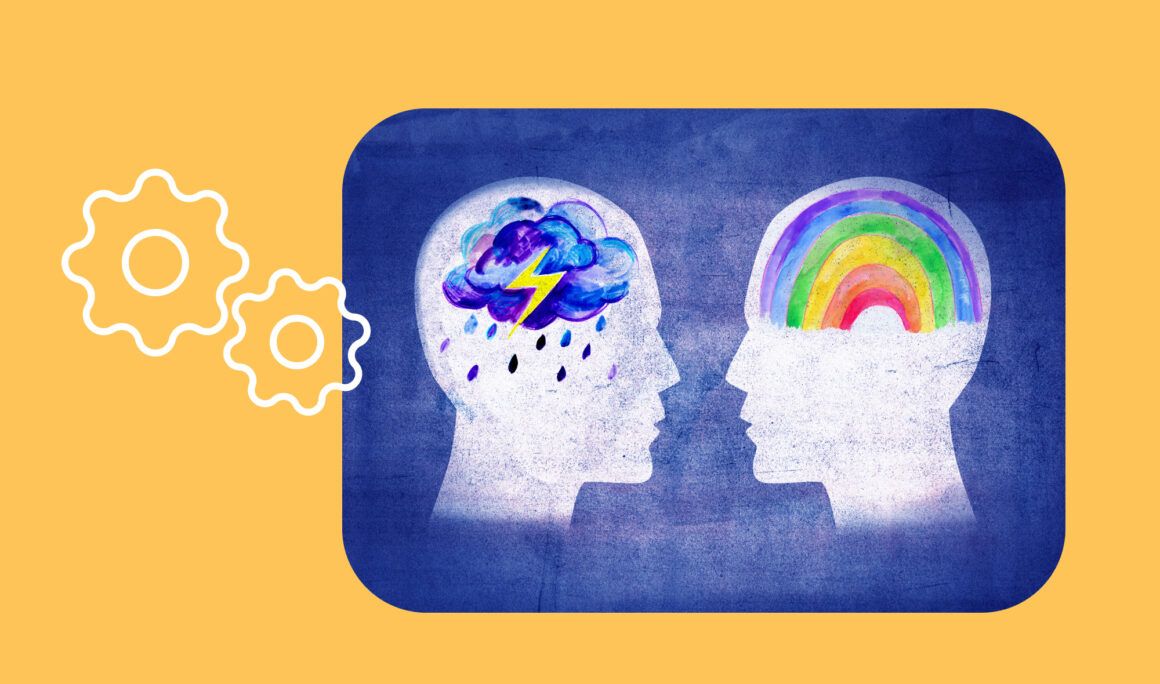The power of logo therapy: how can a logo therapist help you find meaning in life
By Julian Lewis • December 22, 2022

Although it is a lesser-known form of therapy, logotherapy is quickly gaining popularity amongst those who are looking to find more meaning and purpose in life. Logotherapy is a powerful tool that helps people tap into their deepest desires and passions, and discover new ways to achieve happiness and fulfillment in their lives.
Read on to learn more about the basic tenets of logotherapy, how it works, and the countless benefits that it can offer.
Logotherapy: Definition

Logotherapy is a type of psychotherapy that focuses on helping human beings find meaning and purpose in their lives. This form of therapy was developed by Viktor Frankl, a renowned psychiatrist and Holocaust survivor, who believed that a man's search for meaning was the primary motivation in human life.
Who was Viktor Frankl?
Born in 1905, Viktor Frankl was a widely respected psychiatrist from Vienna, Austria, and is considered to be one of the pioneers in modern psychotherapy.
During his time as a prisoner at Auschwitz and other concentration camps during World War II, Frankl observed that a human being who was able who devoted their energy to helping and caring for others was less likely to lose hope, even in the face of tremendous adversity.
Based on these observations, he committed his life to study the human search for meaning and developed the positive psychology theory of logotherapy in 1946. Frankl believed that everyone has an innate drive towards self-transcendence and a desire to find meaning and purpose in their lives.
According to Frankl, there are three key elements that contribute to our sense of meaningfulness: purpose, suffering, and love. Through the process of logotherapy, individuals can learn how to harness these elements in order to find greater happiness and fulfillment in their lives.
Through his work as a therapist, Viktor Frankl was able to help countless individuals find the courage and strength to persevere during difficult times. His own experiences with loss, suffering, and grief shaped his views on the importance of finding purpose and a man's search for meaning in life, even during times of adversity.
Foundations of Logotherapy
Logotherapy is based on the belief that every individual has the potential to find meaning and purpose in their lives, regardless of their circumstances. This type of therapy focuses on helping individuals discover and pursue their own unique meaning and purpose, often through the use of techniques such as guided self-reflection and self-exploration.

The principles of logotherapy
The core principles of logotherapy are rooted in existential philosophy, which asserts that individuals have the freedom and responsibility to create their own meaning in life. This means that individuals must take an active role in their own self-discovery and growth, rather than simply accepting the meaning and purpose that is prescribed to them by others.
Let's take a deeper look at the three key elements of meaningfulness that Viktor Frankl's logotherapy consisted of:
Purpose
Purpose is the key to finding meaningfulness in one's life because it gives us a sense of direction and provides us with a reason for living. It allows us to focus our energy on something that has meaning and value and gives us a greater sense of objective reality. Purpose is at the heart of logotherapy, as it is the driving force behind all of the techniques and activities that are used in this type of therapy.
Suffering
Suffering is an important aspect of the search for meaning, as it allows us to gain insight into our own feelings and experiences, become more self-aware, and develop a greater understanding of what makes us truly happy. Frankl believed that unavoidable suffering can bring about growth and change, allowing us to see how far we have come and how far we still need to go.
Love
In logotherapy, love is seen as the final key factor in helping individuals find meaning and purpose in their lives. Frankl believed that it was important to experience love and connection with others, as this helps us to feel more supported, and fulfilled. It also gives us a greater sense of purpose and meaning by reminding us that we are not alone in our struggles.
The goals of logotherapy
The goals of Viktor Frankl's logotherapy are to help individuals discover their own ultimate purpose and to support them in the search for meaning in their daily lives. This positive psychology may involve helping individuals to overcome obstacles and challenges that stand in the way of achieving their goals, as well as providing support and guidance as they navigate the challenges and changes that come with living a more fulfilling and satisfying life.
Research has shown that those struggling with the following challenges in their life may be able to improve their psychological well-being and life satisfaction through commitment therapy or a logotherapy program.
Anxiety and depression
The American Psychological Association defines anxiety as a feeling of uneasiness, worry, or fear, whereas depression is described as a serious medical condition characterized by a persistent feeling of sadness and loss of interest in activities that used to be enjoyable. Both anxiety disorders and depression symptoms can have a negative impact on an individual's well-being and ability to function, both emotionally and socially.
Logotherapy has been found to be an effective treatment for these conditions, as it focuses on helping individuals identify the underlying causes of their anxiety or depression and finding ways to address them. Through tools such as self-reflection and journaling, logotherapy allows individuals to gain a better understanding of their thoughts, emotions, and behaviors while providing support and guidance as they work towards overcoming these challenges.
Alcohol and drug treatment
Alcohol and drug abuse can have a devastating impact on individuals and their families, both physically and emotionally. Millions of Americans are affected by substance abuse each year, and those who suffer from addiction often find it difficult to overcome on their own due to the powerful grip of these substances.
Frankl's logotherapy is often used to aid in recovery from addiction by helping individuals to discover the deeper personal meaning behind their addictive behaviors, as well as providing support as they navigate this difficult process. For many, group logotherapy sessions also provide a sense of community and connection that is often lacking in traditional treatment programs.
Grief and loss
The loss of a loved one, whether through illness, accident, or even the end of a relationship, can be extremely difficult to cope with. Many individuals struggle with feelings of sadness, anger, guilt, or despair after experiencing this type of loss, and these feelings may persist for an extended period of time.
If you are grieving or experiencing life transitions such as the loss of a loved one, group logotherapy could be beneficial, as it helps individuals to connect with their pain and find ultimate meaning in their experience.
PTSD and acute stress disorder
Trauma refers to an event or experience that causes an individual to feel intense fear, helplessness, or horror in response. Following his experience in surviving nazi concentration camps, Frankl believed that while some individuals may experience life-long symptoms following a traumatic event, others will only experience these symptoms for a limited period of time before they subside on their own.
Research has shown that logotherapy can be an effective treatment option for those struggling with symptoms of psychological illness like post-traumatic stress disorder (PTSD) and acute stress disorder. This is because logotherapy provides a safe space for individuals to explore their experiences, endure pain and express it in a constructive way, and work through the complex emotions associated with trauma.
If you or someone close to you is dealing with one of these challenges, consider exploring the benefits of logotherapy today. With the help of a skilled logotherapy practitioner, you can discover a more fulfilling and purposeful life.
How does logotherapy work?

Similar to other types of cognitive behavioral therapy, logotherapy works by helping the patient to identify negative thoughts and replace them with more positive, realistic thoughts.
The process of logotherapy
The process of logotherapy typically begins with an initial consultation, during which the therapist will learn more about the individual's background, experiences, and goals. The therapist may also use various assessment tools to gain a better understanding of the individual's current state of mind and emotional well-being.
Following the initial consultation, the therapist will begin working with the individual to assist them in discovering meaning in life and develop strategies for pursuing their life purpose. This may involve a combination of self-reflection, guided exercises, and other therapeutic techniques and approaches.
The role of the logo therapist
The role of the therapist is to provide support and guidance to individuals as they explore their own unique meaning and purpose. This may involve helping individuals to identify their values and goals, as well as providing tools and techniques to help them pursue these goals and live a more fulfilling and meaningful life.
The techniques used in logotherapy
Early on in the process, the therapist will work with the individual to develop a personalized treatment plan. This plan may include a variety of techniques and activities designed to help the individual explore their own unique meaning and purpose.
There are many primary techniques designed to facilitate different therapeutic processes. Here are the top three:
Socratic dialogue
This technique involves asking a series of thought-provoking questions designed to provoke deeper self-reflection and insight. By encouraging individuals to think critically about their experiences, values, and beliefs, the therapist is able to facilitate greater understanding and personal growth.
Journaling is a great exercise to encourage Socratic dialogue. Questions like, "What experiences have helped shape the person you are today?" and "What do your core values mean to you, and how can they help guide your actions?" can help individuals dig into their own experiences and beliefs and become an active participant in their own healing.
De-reflection
De-reflection is a technique used to help individuals reduce the fixation or focus on their own problems, such as negative thoughts and emotions. This can involve challenging negative thoughts and helping individuals find ways to redirect their attention toward more positive and meaningful activities.
Many Americans struggle with anxiety and depression, which can both be helped by the use of de-reflection. Therapists may encourage their clients to spend time focusing on things besides themselves, such as volunteering at a local shelter or spending time with loved ones. This can help individuals cultivate more positive emotions, better mental health issues, and find greater meaning in life.
Paradoxic intentions
To help individuals embrace their negative emotions and experiences, rather than pushing them away or trying to avoid them, many logotherapists implement a technique called paradoxic intentions. By recognizing the validity of these feelings or issues, individuals are able to accept and work through them in a more constructive and healing way.
One task that can assist with paradoxic intentions is practicing mindfulness, which involves being mindful of one's thoughts and feelings without judgment, criticism, or fear. This can help individuals cultivate greater awareness of their own mental state, emotions, and behaviors, making it easier to accept difficult experiences and emotions as part of life.
Ultimately, Frankl's logotherapy techniques allow individuals to better understand themselves and ultimately find greater meaning in their lives.
Benefits of Viktor Frankl's logotherapy
Despite its roots in existential philosophy, logotherapy has been shown to be an effective approach to mental health, with many individuals reporting a greater sense of meaning and purpose in life as a result of treatment.
Improved mental health and well-being
There are many potential benefits to participating in logotherapy, including improved mental health and well-being. For many individuals, the process of exploring their own unique meaning and purpose can provide a sense of direction and clarity, as well as a greater sense of control over their own lives. This can help to reduce stress and anxiety, and can also improve overall mental health and well-being.
Increased sense of purpose and meaning in life
Another likely benefit of logotherapy is an increased sense of purpose and meaning in life. The process of exploring their own unique meaning and purpose can provide a sense of direction and focus, as well as a greater sense of connection and fulfillment. This can help to improve the overall quality of life and can also provide a sense of hope and optimism for the future.
Enhanced relationships and communication
In addition to these benefits, logotherapy can also enhance relationships and communication. By helping men and women to better understand their own values and goals, logotherapy can provide the tools and skills needed to improve communication and connect with others in more meaningful and authentic ways. This can help to improve relationships with friends, family, and loved ones, and can also enhance overall social and emotional well-being.
How to find a logo therapist
The qualifications and training of a logo therapist
If you are considering participating in logotherapy, it is important to find a qualified and experienced logo therapist to guide you on your journey. A qualified logo therapist will have the training and expertise needed to provide effective support and guidance in the process of self-discovery and growth. These trainings or certifications may include a graduate degree in humanistic psychology or counseling, as well as additional training or certifications specific to logotherapy and existential analysis.
Online reviews can be another way to determine whether or not a logo therapist is right for you. Reading the reviews of past clients can provide valuable information and insight into the experience, approach, and effectiveness of a given therapist.
The importance of finding a qualified and experienced logo therapist
Unfortunately, many people have enrolled in a logotherapy program to discover meaning in their everyday life, only to find that their therapist is unqualified or unhelpful. This can be very discouraging, especially if you are just starting out, and can make you question whether or not the process is right for you.
That's why it is so important to carefully consider your options and take the time to find a qualified and experienced logo therapist. This will help ensure that you are able to get the most out of your therapy experience, and can ultimately help you on your journey toward greater meaning, purpose, and fulfillment in life.
Tips for finding a logo therapist that is right for you
To find a qualified therapist, you can reach out to your primary care physician for recommendations, or contact local mental health centers and organizations for a list of trained therapists in your area. You can also search for logo therapists in your area online, or contact professional organizations such as the American Psychological Association to find qualified therapists in your area.
You may want to schedule initial consultations with several different therapists to find the one that is the best fit for you. It is also important to feel comfortable and safe with your therapist and to trust that they are dedicated to helping you achieve your goals.
Encouraging logotherapy and existential analysis habits at home
Did you know that these therapy concepts can be practiced in the comfort of your own home? There are many different ways to get started, and you can find plenty of resources online to help you. You don't need any special equipment or training, just a willingness to explore these fascinating topics.
4 activities and worksheets
Here are some of the easiest ways that you can start practicing logotherapy and existential analysis with your spouse, friend group, or entire family:
- Passengers on the Bus group activity: This is a fun and interactive exercise that is great for groups. To participate, divide your group into two teams, and have each team board a bus (or another type of vehicle) facing away from the other team. Then, have one team start chanting "passengers on the bus," while the other tries to guess the meaning of the chant. This is a great way to build teamwork and communication skills and explore the concepts behind logotherapy and self-analysis in an engaging and playful way.
- A value tattoo: To participate in this activity, each person in your group chooses a value or virtue (such as courage, compassion, or honesty) that they would like to explore. Then, everyone tries to express their chosen value through a temporary tattoo. This activity can help you deepen your understanding of these important concepts, and also help you to connect with others on a deeper level.
- Valued living in challenging times: This is a great exercise for those looking to apply logotherapy and existential analysis concepts in difficult situations or times of crisis. To participate, simply spend some time reflecting on the values that are most important to you, and how they might be most helpful in challenging or stressful situations. You can also explore this idea with others by engaging in meaningful conversations or group activities.
- Find Your Purpose worksheet: Another tool for exploring the role that existential analysis can play in our lives is the Find Your Purpose worksheet. To get started, simply complete the worksheet by writing down your current purpose or goals, and then reflecting on how these values might affect them. You can also discuss this with others to gain new perspectives or share what you have learned in a group discussion or activity.
With these and many other tools, you can easily start exploring logotherapy right at home! So why wait? Start exploring today!
Conclusion

Importance of logo therapy in today's society
In today's fast-paced and often stressful world, many people struggle to find meaning and purpose in their lives, and Frankl's logotherapy can provide the necessary tools in this pursuit.
Logotherapy can provide valuable support and guidance in the journey toward finding meaning and purpose in life. Through the process of self-discovery and growth, logotherapy and existential analysis can help individuals to improve their mental health and well-being, and to live a more fulfilling and meaningful life.
If you are considering participating in logotherapy, it is important to find a qualified and experienced logo therapist to guide you on your journey. By working with a qualified therapist, you can gain the tools and skills needed to explore your own life's meaning and purpose and to live a life that is true to yourself and your values.

Read more about: Life Coaching, Existential Crisis
About Julian Lewis
Julian Lewis is a driven and accomplished professional with a passion for driving positive change in the business world. He is the co-founder and COO at Zella Life.
His own experience as a professional of color in a Fortune 500 company led him to discover the limitations for advancement that many professionals like himself face. Determined to reach his full potential, Julian became an established business coach and entrepreneur, committed to supporting others in their pursuit of personal and professional growth.
Today, Julian is a recognized corporate trainer, coach, and leader, known for his ability to leverage real-life experiences and evidence-based methodologies to affect positive change within individuals and organizations. As the leader of Zella Life's coaching division, he is dedicated to empowering individuals and businesses to achieve their full potential.